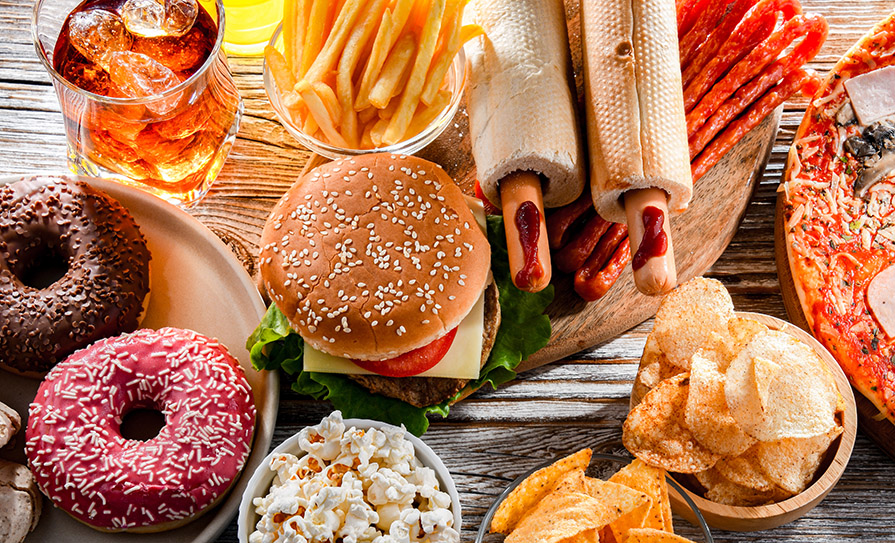Glancing through the dietary headlines, to see what the latest scare might be, I came across two stories that caught my attention for different reasons. The first showed that it’s never too late to admit that you got it pretty seriously wrong. The second is a fine example of flawed research.
When the EAT-Lancet dietary recommendations, as they are commonly known, were published back in 2019 it was hailed by many as a vindication of vegetarianism and veganism, thanks to its emphasis on plant-led eating. There was much rejoicing amongst vegetarians and vegans. But it didn’t take long for some serious criticisms to appear, although newspapers around the world loved it. EAT-Lancet became, for a time, a media darling.
The irony that it does not cite a single clinical trial that supports the idea that vegetarian or vegan diets promote good health or fight disease was apparent only to some.
That it also neglected to cite any rigorous clinical trial data that show conclusively how red meat consumption affects health was glossed over. The reason for the omission is simple. Such data don’t exist.
The EAT-Lancet diet was presented as the collective and considered opinion of 37 nutrition experts from around the world. But were they representative of international expert opinion? Well, the majority are on record as being in favour of vegetarian, vegan, and generally anti-meat diets.
And there’s the matter of conflict of interest. None were disclosed, although many authors had received funding from companies or organisations that promote vegetarian/vegan products or diets. The lead author (or “commissioner” as the authors were called), William Willett of Harvard is the subject of an eight-page list of potential conflicts of interest, in relation to vegetarianism and/or veganism, published by The Nutrition Coalition here: www.scribd.com/document/397606854/Walter-Willett-Potential-Conflicts-of-Interest.
It was pointed out at the time that the EAT-Lancet diet is nutritionally deficient. Not many paid much attention. But now The Lancet Planetary Health has published a paper entitled ‘Estimated Micronutrient Shortfalls of the EAT-Lancet Planetary Health Diet’. www.thelancet.com/journals/lanplh/article/PIIS2542-5196(23)00006-2/fulltext.
It’s pretty damning. The adoption of the diet could result “in substantial public health burdens”, and lead to deficiencies in iron, especially in fertile women, calcium, and zinc. It concludes that nutrient adequacy requires a substantial increase (from the recommended baseline) in nutrient-dense foods like fish, shellfish, seeds, eggs, and beef, and a reduction in high phytate foods, such as whole grains, pulses, and nuts. (High levels of phytate, inhibits mineral absorption).
I suppose we should take heart in the fact that the deficiencies of 2019 have now been highlighted. Progress does happen.
But not in the second dietary headline to catch my eye. A press release, published on 5 March, by the American College of Cardiology (ACC) was entitled: ‘“Keto-like” diet may be linked to higher risk of heart disease, cardiac events.’ The sub-head read “Popular weight-loss diet is also associated with higher levels of LDL cholesterol”. www.acc.org/About-ACC/Press-Releases/2023/03/05/15/07/Keto-Like-Diet-May-Be-Linked-to-Higher-Risk.
This is an area in which I take a special interest and I was immediately sceptical. For a start, what on earth is a “keto-like” diet? I mean, it’s either ketogenic or it’s not.
“Our study found that regular consumption of a self-reported diet low in carbohydrates and high in fat was associated with increased levels of LDL cholesterol – or “bad” cholesterol – and a higher risk of heart disease,” said Iulia Iatan, MD, PhD, attending physician-scientist at the Healthy Heart Programme Prevention Clinic, St Paul’s Hospital and University of British Columbia’s Centre for Heart Lung Innovation in Vancouver, Canada, and lead author of the study.
As regular readers will know,
I practise intermittent fasting during
the week and I restrict my carbohydrate intake, but rarely head into ketosis
“To our knowledge, our study is one of the first to examine the association between this type of dietary pattern and cardiovascular outcomes.”
Well, it may be one of the first, but its worth is debatable. Did you notice the words “self-reported” there? People are notoriously bad at self-reporting what they eat and don’t eat.
And how many people self-reported? At first glance, it looks like over 70,000, but this is the total number of people self-reporting whatever diet, if any, they are on. Out of this group, a whopping 305 people self-reported that they met the study’s criteria for low carbohydrate high fat diet.
Ok, but what were the criteria? Well, no more than 25 per cent of daily calories from carbohydrates, and no more than 45 per cent from fat, is what the researchers decided. A ketogenic diet is generally defined as one where carbohydrates account for no more than 10 per cent of calories, 20-to-30 per cent from protein, and 60-to-80 per cent from fat.
So, what the ACC is reporting on is a study of 305 people who were eating a moderate amount of carbohydrate and a bit more fat. Not 305 people who were eating a ketogenic diet. So, what was the point? There’s no such thing as a keto-like diet. It’s keto or not keto.
As regular readers will know, I practise intermittent fasting during the week and I restrict my carbohydrate intake, but rarely head into ketosis. The advantage in this is that I can enjoy a glass or two of wine with my protein rich
steak and the glorious fat of my own Béarnaise sauce.
DRINK OF THE MONTH
My latest steak-friendly wine discovery is Monsieur Cambon Haut-Médoc 2018 (€20, whelehanswines.ie), the produce of younger vines at the cru bourgeois exceptional Château Cambon La Pelouse, a property highly rated by Robert Parker, if that floats your boat, and now owned by Treasury Wine Estates, which has Penfolds and several other very serious wine brands, plus the ludicrous 19 Crimes. Monsieur is mainly Merlot with some Cabernet for tannins and the freshness comes from a dollop of Cabernet Franc. It’s fleshy and savoury and everything a proper Bordeaux should be this side of the serious and expensive stuff. It’s a bargain and merits a trip to Loughlinstown.













Leave a Reply
You must be logged in to post a comment.